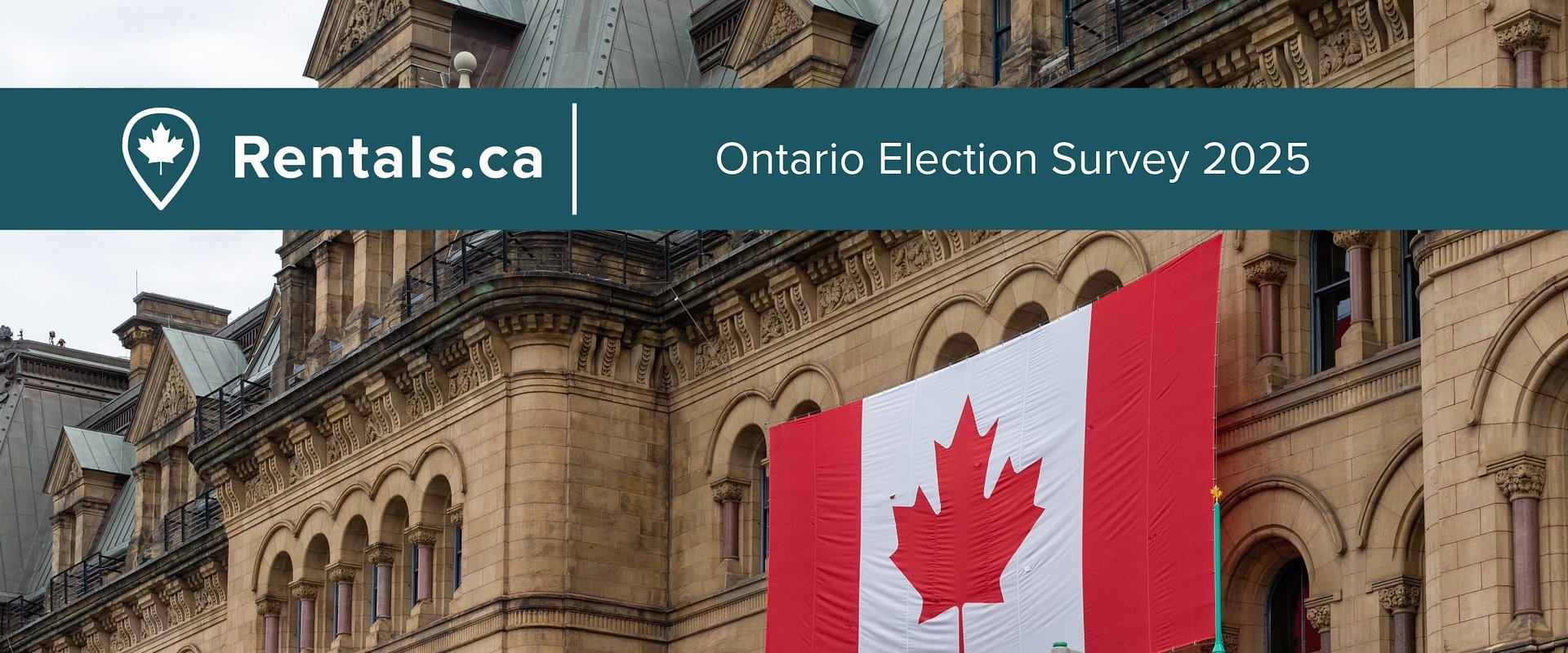Toronto - February 24, 2025 - A recent survey conducted by Rentals.ca highlights a significant divide among Ontario renters as the province heads into its upcoming election. With housing affordability and rental policies taking centre stage, the survey reveals renters’ concerns and their influence on voting decisions, showing that housing issues will play a pivotal role in shaping the election outcome.
The survey found that while some renters feel informed about housing policies—with 14% stating they are very well-informed and 30% somewhat informed—a significant portion remains unclear about where political parties stand. Nearly 40% of respondents expressed uncertainty or lack of information, underscoring the need for clearer communication from those in power. Renters are predominantly turning to digital sources for their news: 28% rely on news websites and blogs, 27% use social media, and 24% watch TV news. In contrast, traditional sources such as political party platforms and podcasts are less frequently consulted.
For voting intentions, 25% of respondents lean towards the Conservative Party, 17% favour the Liberals, 12% support the NDP, 8% have chosen “None of the above,” and 3% lean towards the Green Party. However, the largest group was still undecided, at 35% of respondents. These findings suggest that housing affordability may well be the defining issue in this election, with renters urging political parties to present clear, actionable solutions that address their everyday challenges.
The survey also revealed that an overwhelming 85% of renters believe housing affordability has worsened over the past five years, with housing policies scoring an average importance of 4.27 on a scale of 1 to 5 when choosing a political party. Despite this, confidence in political parties remains low. No party achieved a high confidence rating from more than 14% of respondents; the Conservative Party, the New Democratic Party, and the Liberals recorded confidence levels of 14%, 12%, and 11% respectively, with a majority of renters expressing only moderate to low confidence.
Respondents pointed to multiple factors fueling the housing affordability crisis. 19% of renters cited economic challenges such as inflation and economic instability, while 16% and 14% noted a lack of housing supply and wage stagnation, respectively, against the backdrop of rising housing costs. Other concerns include government policies or inaction, high interest rates, and additional influences like rising construction costs and zoning regulations.
To read the entire survey, visit the article on Rentals.ca by clicking here.
The survey found that while some renters feel informed about housing policies—with 14% stating they are very well-informed and 30% somewhat informed—a significant portion remains unclear about where political parties stand. Nearly 40% of respondents expressed uncertainty or lack of information, underscoring the need for clearer communication from those in power. Renters are predominantly turning to digital sources for their news: 28% rely on news websites and blogs, 27% use social media, and 24% watch TV news. In contrast, traditional sources such as political party platforms and podcasts are less frequently consulted.
For voting intentions, 25% of respondents lean towards the Conservative Party, 17% favour the Liberals, 12% support the NDP, 8% have chosen “None of the above,” and 3% lean towards the Green Party. However, the largest group was still undecided, at 35% of respondents. These findings suggest that housing affordability may well be the defining issue in this election, with renters urging political parties to present clear, actionable solutions that address their everyday challenges.
The survey also revealed that an overwhelming 85% of renters believe housing affordability has worsened over the past five years, with housing policies scoring an average importance of 4.27 on a scale of 1 to 5 when choosing a political party. Despite this, confidence in political parties remains low. No party achieved a high confidence rating from more than 14% of respondents; the Conservative Party, the New Democratic Party, and the Liberals recorded confidence levels of 14%, 12%, and 11% respectively, with a majority of renters expressing only moderate to low confidence.
Respondents pointed to multiple factors fueling the housing affordability crisis. 19% of renters cited economic challenges such as inflation and economic instability, while 16% and 14% noted a lack of housing supply and wage stagnation, respectively, against the backdrop of rising housing costs. Other concerns include government policies or inaction, high interest rates, and additional influences like rising construction costs and zoning regulations.
To read the entire survey, visit the article on Rentals.ca by clicking here.
The survey was conducted online, targeting a sample of 500 Canadian renters. Respondents were selected from renters, and our user base to ensure we capture the perspectives of individuals actively engaged in the rental market.
Using a standard 95% confidence level, the margin of error for this survey is approximately ±4.4 percentage points. We would expect the results to fall within this margin 19 times out of 20.
Using a standard 95% confidence level, the margin of error for this survey is approximately ±4.4 percentage points. We would expect the results to fall within this margin 19 times out of 20.

